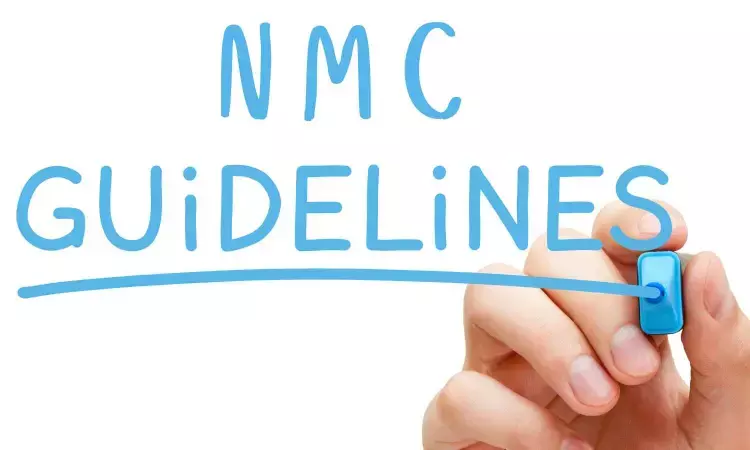- Home
- Medical news & Guidelines
- Anesthesiology
- Cardiology and CTVS
- Critical Care
- Dentistry
- Dermatology
- Diabetes and Endocrinology
- ENT
- Gastroenterology
- Medicine
- Nephrology
- Neurology
- Obstretics-Gynaecology
- Oncology
- Ophthalmology
- Orthopaedics
- Pediatrics-Neonatology
- Psychiatry
- Pulmonology
- Radiology
- Surgery
- Urology
- Laboratory Medicine
- Diet
- Nursing
- Paramedical
- Physiotherapy
- Health news
- Fact Check
- Bone Health Fact Check
- Brain Health Fact Check
- Cancer Related Fact Check
- Child Care Fact Check
- Dental and oral health fact check
- Diabetes and metabolic health fact check
- Diet and Nutrition Fact Check
- Eye and ENT Care Fact Check
- Fitness fact check
- Gut health fact check
- Heart health fact check
- Kidney health fact check
- Medical education fact check
- Men's health fact check
- Respiratory fact check
- Skin and hair care fact check
- Vaccine and Immunization fact check
- Women's health fact check
- AYUSH
- State News
- Andaman and Nicobar Islands
- Andhra Pradesh
- Arunachal Pradesh
- Assam
- Bihar
- Chandigarh
- Chattisgarh
- Dadra and Nagar Haveli
- Daman and Diu
- Delhi
- Goa
- Gujarat
- Haryana
- Himachal Pradesh
- Jammu & Kashmir
- Jharkhand
- Karnataka
- Kerala
- Ladakh
- Lakshadweep
- Madhya Pradesh
- Maharashtra
- Manipur
- Meghalaya
- Mizoram
- Nagaland
- Odisha
- Puducherry
- Punjab
- Rajasthan
- Sikkim
- Tamil Nadu
- Telangana
- Tripura
- Uttar Pradesh
- Uttrakhand
- West Bengal
- Medical Education
- Industry
Medical Teachers Must Participate in Examination Process to ensure sanctity and fairness of exam: NMC Guidelines

New Delhi: In its recently released guidelines on "Professional Responsibilities of Medical Teachers", the National Medical Commission (NMC) has specified that in order to ensure the sanctity and fairness of the examination process, the medical teachers must participate in the examination process as and when asked.
"Teachers are required to be involved in examinations process as per norms based on the eligibility criteria. The examination process requires both internal and external examiners and teachers must participate in examination process as and when asked so that the sanctity and fairness of the examination system is ensured," stated the recent guidelines issued by the Ethics and Medical Registration Board (EMRB) of NMC.
Apart from this, the Ethics Board of the Commission has also asked the eligible teachers to evaluate the examination answer papers diligently to ensure that marking is done "fairly and timely". Teacher should not allow canvassing for extra marks during practical examinations, NMC mentioned.
Medical Dialogues had earlier reported that NMC in the guidelines has discussed about the personal attributes and conduct of teachers including several factors such as teacher as a role model, the teaching-learning process, and assessment and examination process. Apart from this, NMC has also discussed the teacher-student interactions, bedside teaching, responsibilities of teachers to their colleagues, and responsibilities of teachers to the community.
Also Read: NMC releases Guidelines on Professional Responsibilities of Medical Teachers, details
While specifying the personal attributes and conduct of teachers, NMC also discussed their roles in the assessment and examination process. NMC pointed out that Competency-based continuous assessments are an integral part of the medical curriculum.
"Teachers are required to conduct this with diligence, ensuring the students achieve these competencies at the required level. Certifying students to be competent when they are not, or vice-versa is unethical. Their role as gatekeepers is critical," stated the guidelines.
NMC also mentioned that the teacher's role is very crucial while certifying a student. Therefore, the teachers must ensure 360-degree evaluation of students. "The examination must go beyond the final summative assessment and should include regular formative assessments with more emphasis on the latter," the guidelines mentioned.
It also added that the teachers must set assessments and examination papers keeping in mind the blueprints for examinations to achieve the purposeful goal of the curriculum as per CBME. They must also ensure that the question papers are kept confidential and that teaching is holistic and not only examination- centric.
"During invigilation of examinations, teachers are required to report any issues of cheating or malpractice so that appropriate action can be taken. Cheating and dishonest conduct of examinations is unjust to most students who prepare diligently for the examinations," NMC stated.
The Commission further mentioned that the teachers should be aware of students following a "hidden curriculum," and to overcome this, teacher should be trained in psychometric properties of assessment.
Apart from this, the guidelines also reminded the teachers to supervise the log book of students in which there is regular record of student activities.
However, releasing the guidelines, the apex commission has clarified that "The intention behind these Guidelines is not to penalize or point a finger at any teacher but to remind him/her of the professional role of a medical teacher in the training of medical students & other healthcare professionals and in life of students and the nation. The hope is that they will introspect in light of these guidelines and improve the quality of teaching and reduce gaps in learning in light of expectations of students and society."
Also Read: NMC Guidelines call for Empathy and Compassion from Medical Teachers
M.A in English Barsha completed her Master's in English from the University of Burdwan, West Bengal in 2018. Having a knack for Journalism she joined Medical Dialogues back in 2020. She mainly covers news about medico legal cases, NMC/DCI updates, medical education issues including the latest updates about medical and dental colleges in India. She can be contacted at editorial@medicaldialogues.in.


